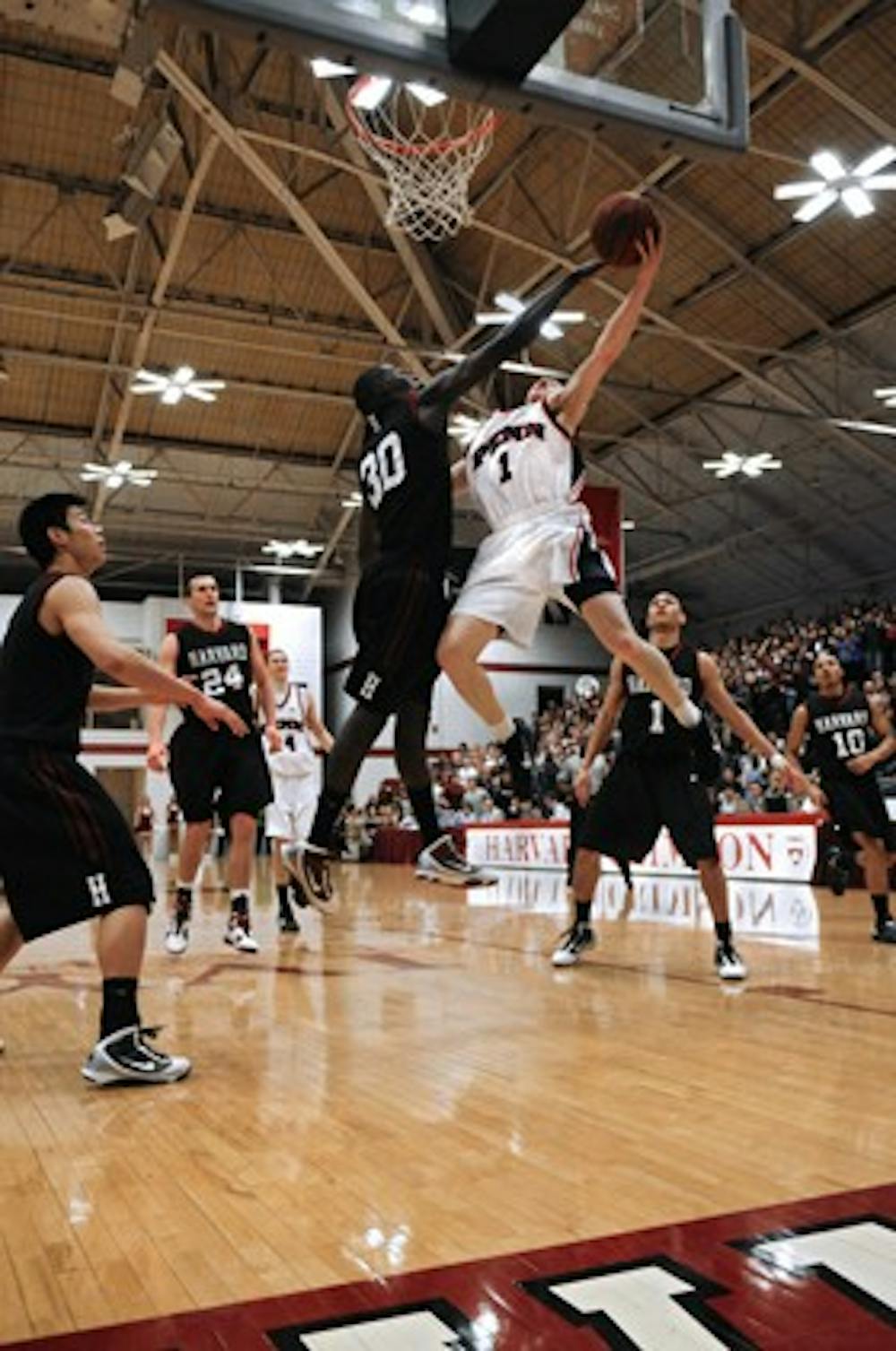
CAMBRIDGE, MASS. — If you only tuned in for the second half of both games this weekend, you missed the whole story.
Twice, the Quakers found themselves down big early, and twice their second half performance showed the difficulty of fighting an uphill battle.
Of course, that’s nothing new for this Penn team, which has time and again found itself in a deep hole in the opening minutes of games.
“It seems like it’s Groundhog’s Day, it’s the same darn thing,” coach Jerome Allen said Saturday. “We’re doing a good job of fighting back to get ourselves in ballgames, but you gotta exert a lot of energy.”
The Quakers allowed Harvard to run to a quick 12-2 lead in the first three minutes. By the first media timeout, Penn had committed three turnovers and three fouls. For most of the game, the Crimson lead hovered around fifteen points.
The slow start forced the team to play catchup for the rest of the game, which cost them down the stretch.
Midway through the second half, the Red and Blue had finally woken up. They kept the Crimson scoreless for over four minutes while launching an 11-0 run that cut the Harvard lead to six points with just under five minutes to go.
But on the game-deciding possession, fatigue finally set in.
With the Quakers in a zone defense, Harvard’s adept passing got Penn defenders to leave their feet on at least four occasions. And when Harvard’s Christian Webster got an open look from three point range, he drilled it home.
Though a monster Jack Eggleston dunk kept momentum in balance, Oliver McNally’s triple on the ensuing drive put the Crimson up 10 and all but sealed Penn’s fate.
So with seemingly everything in their favor, the Quakers gave up two open three-point looks, and Harvard’s sharpshooters made them pay.
But the root cause of Harvard getting those looks came nearly an hour and a half earlier, when the Crimson raced out to the early first half lead.
“When we’re down, we have to pressure them on defense, we have to be a little more risky,” junior Dan Monckton said. “And with the risk, we had some guys open and they were hitting shots. With the game closer, it’s a different situation. We’re able to stay in man and stay on our feet and not try and pressure them to get the tempo up.”
Even against a Dartmouth opponent still looking for its first Ivy win, Penn surrendered an early 10-3 lead. Though it regained composure and had the advantage heading into halftime, the extra energy spent catching up and maintaining constant pressure nearly gave away the game.
After a huge defensive stop with just 16 seconds left, Eggleston missed the front end of a one-and-one. On the Big Green’s final possession, they got not only an open three point look but two offensive rebounds and put-back attempts.
While Penn was fortunate to get out of Hanover, N.H. with a win despite coming out flat, early deficits have doomed the Quakers all season. They will continue to do so if the team can’t put an end to their slow starts.
“It’s something we’re trying to fix,” Monckton said. “It’s something we’re trying to pinpoint as to why it’s happening. But I feel like every game we’ve been playing, we’re playing catchup.”
Step one is acknowledging the problem exists. Now Allen and the Quakers need to figure out its source and how to correct it. If they can, they may be able to put a decent ending on what has been a disappointing season.
The Daily Pennsylvanian is an independent, student-run newspaper. Please consider making a donation to support the coverage that shapes the University. Your generosity ensures a future of strong journalism at Penn.
DonatePlease note All comments are eligible for publication in The Daily Pennsylvanian.








